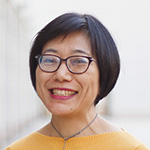The International Biennial Association IBA is a nonprofit arts association created as a platform for establishing, researching and exchanging knowledge and information necessary for institutions and professionals who plan and curate periodic art events such as biennials and triennials, as well as artists, researchers and others concerned with contemporary art. IBA is a centre for producing multidisciplinary discourse that embodies the productive and discursive voices of the contemporary art world.
It develops a range of diverse programs to promote rights and mutual understanding between institutions and their individual members who play pivotal roles in research and practice.
IBA is an initiative conceived during the World Biennial Forum No. 1 Shifting Gravity held in Gwangju, South Korea, in October 2012. Over 60 biennial representatives gathered, and IBA was established as one of the outcomes of the discussions. A Preparatory Committee comprised of 21 delegates from various biennials, triennials and art institutions met in Sharjah in March 2013. Representatives from different regions, histories and backgrounds were chosen to voice the diversity of political and social perspectives. Three separate meetings in Venice, Istanbul and Karlsruhe were then organised for the establishment and growth of the association.
History
The International Biennial Association (IBA) is an initiative taken from the World Biennial Forum No.1 (WBF) “Shifting Gravity,” held in Gwangju and Seoul, South Korea, in October 2012.
The WBF was initiated by Marieke van Hal, director of the Biennial Foundation, together with Yongwoo Lee, then President of the Gwangju Biennale Foundation, and Elke aus dem Moore, Head of the Visual Art Department at ifa (Institut für Auslandsbeziehungen). The Forum gathered over 450 participants from across 150 international art biennials, triennials and art-related institutions. Over 60 biennial representatives attended the “Biennial Representatives Meeting” and as an outcome of the discussions, the International Biennial Association (IBA) was established.
A Preparatory Committee comprised of delegates from 21 various biennales and triennales gathered in Sharjah in March of 2013. Representatives from differing regions, histories and backgrounds were chosen to voice the diversity of political and social perspectives.
Yongwoo Lee, President of the Gwangju Biennale Foundation, was elected as interim President of IBA. Marieke van Hal, Director of the Biennial Foundation, and Bige Örer, Director of the Istanbul Biennale, were elected to serve as the two interim Vice Presidents for the first term. The location of the IBA Office was voted to be situated in the country of residence of the President, in Gwangju, South Korea.
Three separate meetings in Venice, Istanbul and Karlsruhe took place since the initial Preparatory Meeting in Sharjah, covering key objectives for the future direction of the association. Four working committees (Research, Constitution, Structure and Membership, Programming, Content and Pedagogy, and Finance) were formulated and workshops were undertaken to develop programs and strategies to achieve the mission of the association, and in preparation for the first General Assembly in July.
In 2017, Yongwoo Lee stepped down from his position as President of IBA. Hoor Al Qasimi, President of Sharjah Art Foundation, was elected as the new and current President at the 4th General Assembly in Yokohama.
Executive Board

PRESIDENT
President of Sharjah Art Foundation

VICE PRESIDENT
Chief Executive Officer at the Biennale of Sydney

VICE PRESIDENT
Director of Liverpool Biennial
Board Members

Director of the Berlin Biennale for Contemporary Art

Deputy Executive Director of the Organizing Committee for Yokohama Triennale Office


Commissioner and Artistic Director of the Ural Industrial Biennial of Contemporary Art

Founding Director of Ashkal Alwan, the Lebanese Association for Plastic Arts

Director of the Biennial of Media Arts of Santiago

Director of International Affairs at Rencontres de Bamako, Biennale Africaine de la Photographie

Director of the Biennial of Graphic Arts Ljubljana

Director and Chief Curator at Associação Cultural Videobrasil + Artistic Director of the Contemporary Art Biennial Sesc_Videobrasil
Articles of Incorporation (AOI)
(As approved in October 2022)
ARTICLE 1: NAME
The name of the organisation is the “International Biennial Association” and hereinafter referred to as “IBA.”
ARTICLE 2: LOCATION
When a new President is elected, the previous IBA Office managed by the previous President is to be moved and closed automatically upon the opening of the IBA Office in its new location. Both the previous and new Presidents are to provide mutual assistance to ensure a smooth handover.
ARTICLE 3: OBJECTIVES
The objectives of the IBA shall be:
- To expand and share activities of curatorial, artistic creation and knowledge through cooperation and exchange among biennials around the world.
- To create a horizontal network within the broader biennial world to develop further the cultural and artistic production and to create a space for communication, cooperation, and information exchange by providing strategies, methodologies, and vision.
The Mission Statement:
The IBA is a platform for establishing, researching, and exchanging knowledge and information necessary for institutions and professionals, who plan and curate periodic art events such as biennials and triennials, artists, researchers and others concerned with contemporary art.
The IBA is a centre for producing multidisciplinary discourse that embodies the productive and discursive voices of the global biennial community. It develops a range of diverse programs to support rights and promote mutual understanding between institutions and their individual members, who play pivotal roles in both its practice and discourse.
ARTICLE 4: PROJECTS
To promote the mutual exchange of information, cooperation, and benefit of its members, the IBA shall proceed with the following projects:
- To expand the relationships, exchanges and cooperation among related organisations, groups, and individual professionals.
- To organize the exchange of data and cooperation by organizing annual forums, academic research, and seminars.
- To support policy surveys and research on biennials.
- To provide research and advice on the management and administration of biennials.
- To publish reports of the IBA’s activities and relevant publications.
- To acquire funding for promoting the roles and activities of the IBA.
- To support its members and their activities.
- To carry out additional projects to achieve the objectives of the IBA.
ARTICLE 5: OFFICERS
- The IBA shall have the following officers:
- 1 President
- 2 Vice Presidents
- The President of the IBA shall be recommended at a meeting of the board of directors (the “Board”) and elected by a majority vote of the members of the Board (the “Board Members”) present at the meeting.
- Vice Presidents shall consist of the Administrative Vice President and the Research and Planning Vice President. The Administrative Vice President shall also serve as the Chief Vice President. Vice Presidents shall be recommended at a Board meeting and elected by a majority vote of the Board Members present at the meeting.
- The officers shall be appointed by the Board.
ARTICLE 6: ROLES AND TASKS OF OFFICERS
- The President shall have the following duties and powers:
- Representing the IBA.
- Conducting General Meetings as the chairperson.
- Having the right of making a final decision in the event of a tie in votes.
- In the case of the President’s absence or vacancy, the Chief Vice President will serve as the acting president.
- The President and Vice Presidents are honorary positions without remuneration.
- Officers shall serve a term of three years, which can be extended for an additional three years by a resolution of the Board. Time served as an Officer does not count towards time served as a Board Member.
ARTICLE 7: DISMISSAL OF OFFICERS
Any officer who takes part in any action that goes against the objectives of the IBA and/or interrupts the mission of the IBA can be dismissed through a decision made by a vote of Board Members.
ARTICLE 8: ORGANISATION AND OPERATION OF THE BOARD
- A Board Member candidate shall be selected among Individual Members by the suggestion of IBA members with voting rights and the recommendation of more than three Board Members with a majority vote of Board Members at a relevant Board Meeting. Eligible candidates will be elected by obtaining a majority vote of all Institutional and Individual Members present at the relevant General Assembly.
- Board meetings shall be held at least twice a year. Extraordinary Board meetings are convened by the chairperson (i.e., President of the IBA) if necessary.
- A decision of the Board shall be made by a majority vote of the Board Members present at a Board meeting.
- Working Committee Meetings can be convened by Board Members and/or the members of the IBA if necessary.
- The Board can appoint an advisor in case it is necessary for the development of the IBA.
- The number of Board Members shall not exceed 28.
- Board Members serve a term of three years and can be re-elected at the end of each term.
- Eligibility to become a Board Member requires the person to be directly associated with a biennial or in a related field.
- If a Board Member misses two consecutive Board meetings within a year except for due to a force majeure, they are to be considered for dismissal from the Board. Should the Board Member in question wish to maintain their position, they will be required to present their case to the Board. The final decision will be made by the Board.
- The Board Member is responsible and liable as an Individual Member and not as an Institutional Member.
- In the situation a Board Member is unable to attend a Board Meeting, they may select a Board Member who will be present to delegate their voting powers to in order to ensure productive Board Meetings regardless of circumstances in which the majority of the Board is not present.
- Auditors have the right to attend and speak at Board meetings.
- Board Members must hold and maintain a position in an ongoing biennial or relevant field during their term. In the situation where a Board Member is no longer associated with an ongoing biennial or relevant field, they are to be given one year to step down from their position as a member of the Board.
ARTICLE 9: FUNCTION OF THE BOARD
The Board provides the following functions:
- To conduct research for the establishment of policies and the development of the IBA.
- To recommend and elect candidates for the President and Vice Presidents and to appoint Auditors.
- To approve items delegated from General Assemblies.
- To provide support including a preliminary investigation of issues relevant to the IBA.
- To review and approve the annual budget of the IBA.
- To review and approve other important matters of the IBA.
ARTICLE 10: TYPES OF MEMBERSHIP
There shall be the following types of membership in the IBA:
- Individual Member
- A professional engaged in a biennial or in a relevant field.
- Institutional Member
- An institution that has held a biennial or similar events (including triennials, quadrennials and other periodic exhibitions) more than three times.
- Emerging Biennial
- An institution that has not yet reached the requirement of holding three or more editions of a biennial or similar event (including triennials, quadrennials and other periodic exhibitions).
- Associate Member
- An individual or institution that does not qualify for membership as an Individual Member or Institutional Member but desires to become a member of the IBA.
- Supporting Member
- A person or institution providing financial support or contribution to the IBA.
ARTICLE 11: APPLICATION FOR MEMBERSHIP
- The application for an Individual Member shall be submitted to the IBA Office by the applicant accompanied by recommendations from at least two Board Members. The application shall be accepted by approval of the President.
- An application for an Institutional Member shall be submitted to the IBA by the applicant accompanied by recommendations from at least two Board Members. The application shall be accepted by approval of a majority vote of the Board.
- The application for an Emerging Biennial shall be submitted to the IBA Office by the applicant accompanied by a recommendation from at least one Board Member and a Letter of Motivation to the Board. The application shall be accepted by approval of a majority vote from the Board.
ARTICLE 12: RIGHTS AND DUTIES
- Members shall pay an annual membership fee on or prior to the due date of receiving approval of membership.
- Institutional Members and Individual Members have the right to attend and speak at a General Assembly and vote for resolutions on deliberated items and election of a Board Member at a General Assembly.
- Emerging Biennials, Associate Members and Supporting Members have the right to attend and speak but do not have the right to vote at a General Assembly.
- Institutional Members shall provide free admission to their representative biennial or other periodic art event for those holding valid IBA Membership Cards.
- Emerging Biennials have the option to provide free admission to their representative biennial or other periodic art event for those holding valid IBA Membership Cards.
- Emerging Biennials will need to re-apply as Institutional Members following the necessary procedures for new applicants upon the completion of their third edition.
ARTICLE 13: BENEFITS OF MEMBERSHIP
Members of the IBA are provided with the following benefits:
- Membership card(s);
- Publications produced by the IBA;
- Invitation to all events organised or hosted by IBA and its members (biennials and museums); and
- Other benefits as determined by the Board.
ARTICLE 14: LOSS OF MEMBERSHIP
Membership is lost in the following cases:
- If a member voluntarily resigns.
- If the status of membership is lost due to the amendment of the AOI of the IBA.
- If a member is disqualified due to the violation of the AOI of the IBA.
- If a member has not paid the annual membership fee more than a year.
ARTICLE 15: ORGANISATION AND MANAGEMENT OF GENERAL ASSEMBLIES
- There shall be Ordinary General Assemblies (“OGA”) and Extraordinary General Assemblies (“EGA”).
- All members can attend General Assemblies, the highest decision-making organisation within the IBA.
- The OGA shall be convened once a year.
- The EGM shall be convened when the President deems it necessary, or when demanded by one third or more of the Board Members.
- Members shall be informed of the date of a General Assembly at least 90 days prior to such General Assembly.
- The General Assembly is established by the attendance of twenty percent of current Individual and Institutional members (Institutional attendance may be delegated). Decisions shall be made by a majority vote of the members that are present at a General Assembly.
- In the event that the quorum for a General Assembly is not met, remote voting options are to be considered and implemented as needed by the resolution of the Board.
ARTICLE 16: FUNCTION OF THE GENERAL ASSEMBLY
The General Assembly shall consider and approve the following items:
- Establishment and amendment of the AOI of the IBA.
- Election and constitution of Board Members every 3 years.
- Review and approval of future business plans, reports or budget plans.
- Approval of items submitted by the Board.
- Decisions regarding changes to and usage of the membership fee.
ARTICLE 17: MANAGEMENT OF THE IBA OFFICE
- The IBA shall maintain an office (the “IBA Office”) to fulfil its objectives and functions.
- The Secretary General oversees the operations of the IBA Office and is eligible to hire staff if necessary.
- The organisation and management of the IBA Office is decided by the President.
ARTICLE 18: FUNCTION OF THE IBA OFFICE
- To plan and execute the IBA’s business plans.
- To provide administration for the operation of the IBA.
- To provide financial and accounting services.
- To manage IBA membership.
- To assist the operation of the Secretary General of the IBA.
- To provide necessary support for operating the IBA.
ARTICLE 19: ASSETS
IBA assets consist of contributed assets and assets decided by the Board.
ARTICLE 20: DISPOSITION OF ASSETS
When disposing of assets (by sale, donation, lease or exchange) a decision must be made by the Board.
ARTICLE 21: FINANCE
The expenses of the IBA are covered by revenue from the following sources:
- Annual membership fees.
- Subsidies, donations or support from the state, public institutions, private institutions and public organisations.
- Donations and support from individuals.
- Other revenue generated by events, publications, etc.
ARTICLE 22: ACCOUNTING
- The fiscal year of the IBA will be from January 1 through December 31.
- The revenue and expenditure plan of IBA shall be approved by the Board at a Board Meeting and the attendees of a General Assembly will receive a final report of such decisions.
- A financial report shall be prepared after the end of each fiscal year and approved at a General Assembly.
- Regular audits shall be conducted more than once a year and the results shall be reported at a General Assembly.
ARTICLE 23: DISSOLUTION OF THE IBA
The approval of two thirds or more of the total number of members with voting rights at the General Assembly is required for dissolution of the IBA. Dissolution of the IBA must be reported to the relevant competent authority.
ARTICLE 24: DISPOSITION OF REMAINING ASSETS
- In the event that the IBA is dissolved, its remaining assets and debt shall be distributed in a way approved at the General Assembly.
- Any assets remaining from Article 24.1 should be donated to an organisation having similar objectives as those of the IBA.
ARTICLE 25: AMENDMENTS TO THE AOI
Amendments to the AOI of the IBA shall require a majority vote of the members present at the relevant General Assembly where twenty percent or more of the members with voting rights are present.
ARTICLE 26: IMPLEMENTATION
Rules that are needed to implement the current AOI shall be adopted by a resolution of the General Assembly.
These AOI will be implemented from the day of their approval at the General Assembly.
Contact
Email
info@biennialassociation.org
Address
PO Box 20123 Bait Obaid Al Shamsi, Al Shuwaihean, Sharjah, United Arab Emirates
Colophon
Concept
HOOR AL QASIMI, BIGE ÖRER, GABRIELE HORN, JENNIFER LEE, CHRISTIAN OXENIUS, VIKTORIJA RYBAKOVA
Design
VIKTORIJA RYBAKOVA, studio laumes
Technical Development
ERAY YILMAZ



